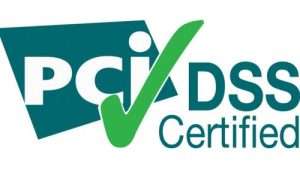Html5 Native App Vs Hybrid Vs Web App Development Cross-Platform

Native vs. Hybrid vs. Web app
Introduction
We are often asked, what is the difference between hybrid, native and Web apps and on the basis of what technology it would be better to develop an app.
Because one can not give blanket answer, we have tried in this article, based on some criteria to help you decide.
Difference between Native App, Web App and Hybrid App
What is a native app? To develop these apps using tools and languages that are supported by corresponding platforms (XCode and objective C for iOS apps, Eclipse, Android Studio and Java for Android, Visual Studio and C# for Windows).
Native apps run only on the target platforms
What is a Web app (HTML 5 app): these apps, HTML 5 apps are cross-platform applications that run in the browser.
As every modern Smartphone has an Internet browser, some Web apps can be used on any platform.
In the background, are the usual Web technologies such as HTML 5, CSS, JavaScript.
The border between Web apps and “normal” sites has become pretty fluent by proliferation of HTML 5.
Hybrid app!: as the name implies, these apps are a combination of the two “pure” forms and an attempt to combine the best of two worlds.
Hybrid apps based on Web technologies like HTML5, CSS, JavaScript, run but a WebView are packed as native apps container, and can thus access native APIs and also the features of the operating system.
In contrast to Web apps, the user can detect little difference to the native apps. Hybrid apps are also distributed through the app store.
Decision Criteria: Native Apps vs. Web Apps vs. Hybrid Apps
Before the start of an app project, it is important to decide which technology should be used for the development. “What technology is better?” is the wrong question; the right question, however, would be, what kind of a project is, what objectives are and what budget is available.
Performance:
The native apps are clearly better than the two other alternatives in terms of performance.
Such apps load the machine hardware resources to a lesser extent.
The speed of the app is one of the most important criteria of usability and therefore taken into consideration.
Also the sensitivity to touch, support of various gestures, be it standard gestures or app-specific gestures are much better at native apps.
Offline usability:
The native and hybrid apps are easily offline. The Web apps can become a problem.
Browser caching supports offline while the Web apps, the capacity of
offline use are very restricted.
Access to native features:
This point is one of the strongest arguments for native apps. Although the Web apps on some functions of the operating system / device can be accessed, the amount is hardly similar to native apps.
Native apps can access notifications in full on the functions of the operating system such as GPS, camera, contact details, gestures.
The hybrid apps can also access most functions, for example, overview with PhoneGap.
Installation:
The native and hybrid apps be downloaded from app store and installed.
The apps via an icon on the desktop are accessible after installation. The Web apps (HTML 5
apps) are called as well as ordinary Web sites through a link or when typing a URL.
Then, these apps as bookmark on the screen of the device can be placed and later be opened via an icon / bookmarks as an ordinary app.
Apparently, the installation is rather lapse for native and hybrid apps, because the search and install of an app of that takes time, however, very simple. This function is used relatively rarely.
Accessibility:
The Web apps are easier for end users to find and use. When looking for information, or choose a task to do, it is much more likely that you only find information on the Internet.
Suppose the user is on the go and want to quickly convert a currency, what is more likely, that he goes to the app store, download an app it opens and converts, or that he might look on Google and calls the next best site to convert the currency? Probably the latter.
Development costs and time:
This criterion is crucial if the app needs to be developed for a single platform (typical case z. (B). iOS app for iPad for use within a company), or as many platforms must be covered.
In the first case, it doesn’t matter on the basis of what technology you developed the app, effort and time period are approximately equal.
The difference in the price and period grows ever more. (D). h. the savings across three platforms is greater than only in iOS / Android.
If you take the normal case, so an app that runs on iOS and Android, you can save more % of costs for hybrid or Web apps as compared to native apps between 15-20.
Why not 50%? Quite simply: the actual app development is only a process of part.
The whole project includes many other parts such as the design, backend testing, project management etc. Here to save little.
Some costs are to be neglected even those that are fixed; variable cost of app store account and in particular the transaction fees of 30%.
These costs, not incurred of course from the HTML5 apps. By the way, the same applies to the content of the app.
Web is (almost) free, however, you can publish (almost) everything in the Web app.
Criteria
Summary of pros and cons
Native apps are clearly better in terms of performance and usability. Also documentation, support, and tools that are available make native apps to be better choice. So anyone who wants to create an app that really “rocks” makes it natively!
Who would like to quickly create relatively cheap app for multiple platforms, especially when the use of native operating system functions is not too extensive, is better off with hybrid apps.
We must also remember that the capabilities and capacities of such apps and tools available to develop very quickly.
For those who place emphasis on traffic from the Web, highly appreciate the platform independence and little interest in the access to native functions respectively. While working offline, Web apps (HTML 5 apps) are recommended.
Hybrid vs. Native vs. Web App
Generally, the broader the audience and less more meaningful requirements for performance, it is to choose either to develop a hybrid or a Web app (HTML 5 app). Otherwise, a native app would be a better alternative.







